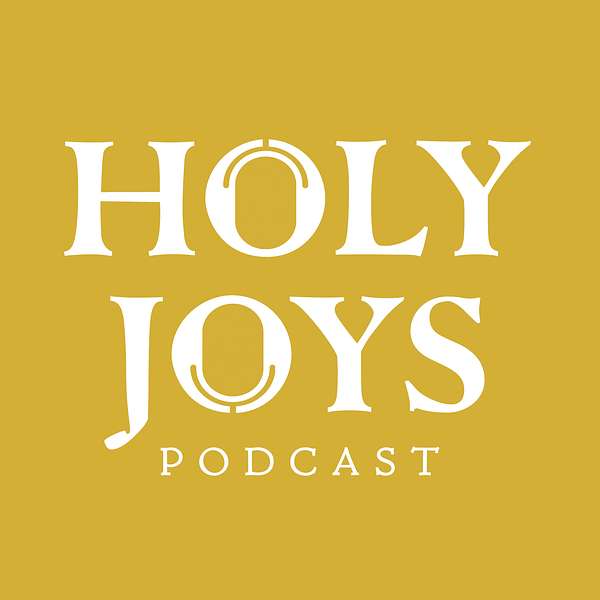
Holy Joys Podcast
A discussion of theology and ministry practice, all for a holy, happy church. A ministry of holyjoys.org.
Holy Joys Podcast
Four Questions About the Incarnation
•
Johnathan Arnold
In this episode, Johnathan Arnold and David Fry address four questions about the incarnation:
- Why did the Son come at Christmas instead of the Father?
- Would God have become incarnate if Adam had never sinned?
- Did Mary give birth to God? (Did God die on the cross?)
- Did Christ really leave his Father’s throne above?
Notes:
- It was fitting for the one who is divinely generated by the Father eternally to be humanly generated by an earthly mother.
- The Father is unbegotten/ungenerated/sends. The Son is begotten/generated/sent. The Spirit proceeds/sent.
- The Father and the Spirit are capable of being incarnate.
- God made us for Himself. We are made to live in holy fellowship with the divine nature, yet not without receiving grace to be made participants in the life of God. For us to live in holy fellowship with the Divine, perhaps it is necessary for God to subsume human nature.
- Is the incarnation merely a response to the fall of humanity?
- Would God have taken everything that is ours in order to give us what was not ours?
- Nicene Creed: “Who for us and for our salvation came down from heaven and was incarnate by the Holy Ghost of the Virgin Mary.”
- Theosis according to Gregory of Nazianzus: We do not become God but we become (mysteriously) partakers of the divine nature.
- Athanasius, On the Incarnation 54: “He became man that we might become god”
- Athanasius, On the Incarnation 4: “We were the purpose of his embodiment, and for our salvation he so loved human beings as to come to be and appear in a human body.”
- Athanasius, On the Incarnation 5: “God created us … corruptible by nature but [capable of] escaping their natural state by the grace of participation in the Word, had they remained good.”
- Felix culpa? “Blessed fall”?
- Did Mary Give Birth to God? (Did God Die on the Cross?)
- Creed of Chalcedon (451): "as regards his Godhead, begotten of the Father before the ages, but yet as regards his manhood begotten, for us men and for our salvation, of Mary the Virgin, the Godbearer (theotokos)."
- Ambrose of Milan, The Sacrament of the Incarnation, 4.23: “I did not have what was His; He did not have what was mine. He assumed what is mine, that He might share what is His. He assumed not to confuse, but to complete it.”
- Ambrose of Milan, The Sacrament of the Incarnation, 5.36: “For the same one suffered and did not suffer; died and did not die; was buried and was not buried; rose again and did not rise again; for the body took on life again; for what fell, this rose again; what did not fall, did not rise again. He rose again, therefore, according to the flesh, which, having died, rose again. He did not rise again according to the Word, which had not been destroyed on earth, but remained always with God. Thus He died according to the assumption of our nature, and did not die according to the substance of eternal life.”
- Charles Wesley, “And Can It Be?” First stanza: “Amazing love. How can it be that Thou, my God, should die for me?”
- Charles Wesley “And Can It Be?” Third stanza: “He left his Father’s throne above...emptied himself of all but love."
- Athanasius, On the Incarnation, 8: “No part of creation is left void of him; while abiding with his own Father, he has filled all things in every place.”

